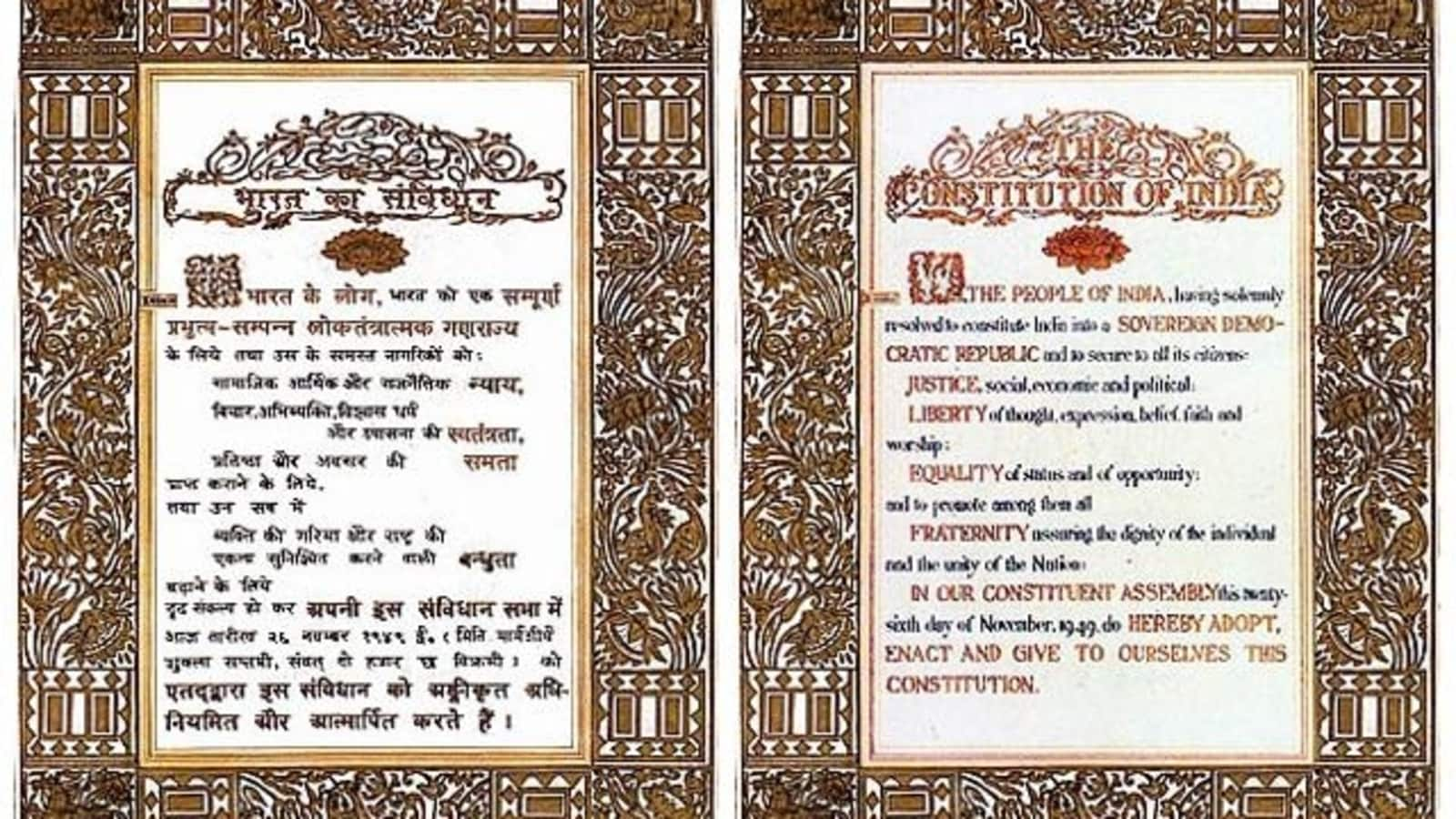
The Meghalaya High Court in challenge to the validity of Meghalaya Cement Cess Act, 2010 has reiterated that for a State in a constitutional republic wedded to the rule of law to suggest that it may indulge in arbitrary or irrational or illegal generation of funds without being liable, is illegal.
The Bench comprising of Chief Justice Sanjib Banerjee and Justice W. Diengdoh held the Act in question to be 'unconstitutional'.
The petitioners herein have contended that the cess imposed by the State of Meghalaya by the Meghalaya Cement Cess Act, 2010 was completely illegal, without any authority and grossly prejudicial to the petitioners and others connected with the cement industry. It was submitted that when a tax is imposed by a State or the Union in accordance with law, a further levy may be added thereto by way of a cess, where the quantum realised by way of the cess is earmarked for a special public beneficial purpose. The petitioners referred to the education cess which is imposed on income-tax and cess charged in various other fields by way of an additional levy but which is earmarked for a special purpose and may not be subsumed as a part of the general revenue of the Union or the State.
The validity of the Act was thus challenged with contention by the petition that for any State to impose a tax or collect a cess thereon, the relevant field has to be discovered in List-II of the Seventh Schedule to the Constitution.

The petitioners after referring to Section 3 and 4 of the impugned Act submitted that since the charging Section makes it incumbent on the person manufacturing or producing cement within the State to be liable to pay cess, it amounts to a kind of additional excise duty which is sought to be imposed though in the guise of cess.
The petitioner further placed reliance on Entry 84 from the Union List as it stood prior to the 101st Amendment to the Constitution which was effected in 2016 to submit that since cement was not included as one of the excepted products in Entry 84 of List I, no impost could have been levied by any State on the manufacture of cement notwithstanding such process of manufacture being within the geographical limits of the State. And, for the same reason that the State had no authority to impose any tax or the like on the manufacture of cement in the State, it did not possess any authority to levy cess on such manufacture.
"There appears to be little room for the State to try and justify its authority in enacting the said Act of 2010 or the levy imposed thereby. Though the State has relied on Entry 54 of the State List, it does not appear that such entry authorises the State to impose a kind of excise duty with a different name."
It duely averred that the State had no authority to impose any tax or cess on the manufacture or production of cement, whether by the said Act or by any other disingenuous device; and, in all fairness, no further attempt is made on behalf of the State to justify the legislative illegality except to suggest that after the GST regime has been put in place, the impugned Act of 2010 has been repealed and the same is no longer relevant.
It added:
"the charging section in the impugned Act, which is Section 3, the levy in this case and the liability which is imposed thereby pertains to “any person or factory who produce cement within the State.” Though Section 6 of the impugned Act provides for the manner of collection and payment of cess and in sub-section (2) thereof prohibits the removal of cement without cess being paid, the expression “sale or transfer” in the final part of Section 6(2) of the impugned Act does not imply that the levy would be on the sale or transfer. The expression “sale or transfer” governs the word “remove” – or, more precisely, the action of removing or transporting or attempting to remove or transport – used earlier in the same provision. At any rate, just like a river cannot rise above its source, Section 6 and the manner of collection of levy cannot override the charging section which imposes the tax on the manufacturers and producers of cement in the State."
The State in justification to the Act and in opposition the petititoner's claims submitted that since the component of cess, like excise duty, would have been passed on by the manufacturer or producer to the customer, the petitioners cannot be refunded the amounts collected from them, even if the levy may have been illegal or without authority. In essence, the State invokes the doctrine of unjust enrichment in the sense that the customer bore the brunt of the levy of cess and since the manufacturer or producer would not be able to reasonably identify the users of the product or distribute the amount refunded to such persons, the manufacturer or producer would not be entitled to any refund to retain it for personal benefit as the perceived illegal additional expense has been borne by the end-user of the product.
High Court ObservationIn agreement to the petitioner's contentions, the Court at the outset noted that the principle is too well established to be questioned and yet, it will not do for a State in a constitutional republic wedded to the rule of law to suggest that it may indulge in arbitrary or irrational or illegal generation of funds without being liable to return the same upon the Court finding the process to be illegal.
"If only as a deterrent, some mechanism has to be put in place to ensure that the State does not indulge in a similar exercise in future to augment its revenue and later present a fait accompli argument to a constitutional Court."
It further opined that undoubttedly, there is no available mechanism to assess the quantum of the levy that may have been passed on to the customer or may have been absorbed by the manufacturers.
"It is possible that a part of it had been passed on and a part absorbed by reducing the profit element. It is equally possible that the entirety of the impost had been passed on to the customers. Yet, it has to be taken into account that notwithstanding the product in the present case being cement, which is indispensable in certain cases, any additional levy on the price of a product reduces the quantum of sale or manufacture in the usual course. In such sense, the manufacturers and producers of cement in the State may have taken a hit as a direct consequence of the illegal impost, for which they ought to be compensated."
In view of the above, the Court said that it cannot be put with certainty as to whether the illegal levy amounted to a specific percentage of loss of revenue or any loss at all. It therefore settled on an ad hoc figure of 20% to be a reasonable amount of loss ought to have occured by the petitioner-manufactures & producers of cement in the State as a result of the illegal levy of cess by the State without any authority.
"in the case where a contract cannot be performed, a ballpark figure of around 15 percent has been judicially recognised in this country to be the loss of the perceived profit, an the ad hoc figure of 20 percent in the case may reasonably be taken to be the amount of loss that was occasioned to the manufactures and producers of cement in this State as a result of the illegal levy of cess by the State without any authority. It is made clear that this figure of 20 percent is arrived at as a rough and ready measure and so that it acts as a deterrent to discourage the State from acting in such high-handed manner and extorting money without authority."
The Court conclusively held that the State had no authority to impose cess in terms of the impugned Act of 2010. It thus annulled the Act as ultra vires to the Constitution and directed the State to refund 20% of the amount realized on such count from the individual petitioners to such petitioners and investing 30% of the total amount of cess realised under bogus legislation for the purpose of procuring the equipment for the cancer wing of the Government General Hospital in Shillong.
Social media is bold.
Social media is young.
Social media raises questions.
Social media is not satisfied with an answer.
Social media looks at the big picture.
Social media is interested in every detail.
social media is curious.
Social media is free.
Social media is irreplaceable.
But never irrelevant.
Social media is you.
(With input from news agency language)
If you like this story, share it with a friend!
We are a non-profit organization. Help us financially to keep our journalism free from government and corporate pressure












0 Comments